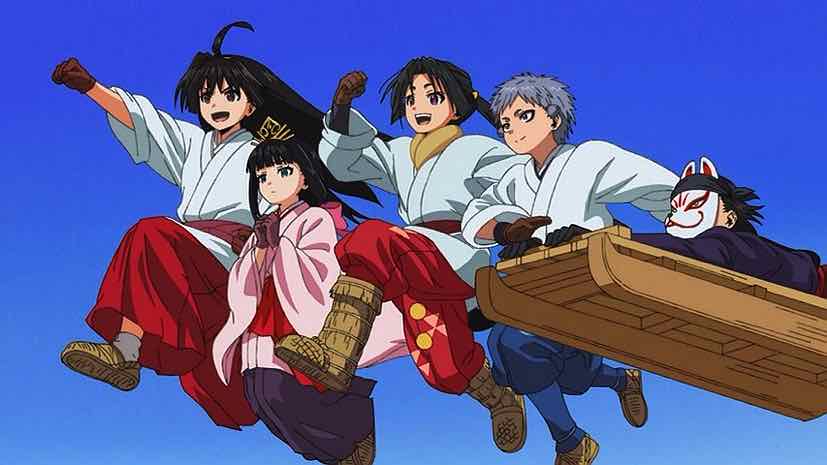 One of the interesting by-products of Matsui Yuusei’s writing style is that a series like The Elusive Samurai doesn’t follow the usual patterns. Normally in this sort of story you have a kind of ebb and flow between dark and serious events, action, and breather chapters. This episode seemed like the latter, but that’s not how Matsui works. Darkness and screwball comedy and mild ecchi are always cheek by jowl with him. No matter how grisly things are he might go zany at any moment, and as light-hearted as a sequence might seem, a hut full of dead parents might be in the next shot.
One of the interesting by-products of Matsui Yuusei’s writing style is that a series like The Elusive Samurai doesn’t follow the usual patterns. Normally in this sort of story you have a kind of ebb and flow between dark and serious events, action, and breather chapters. This episode seemed like the latter, but that’s not how Matsui works. Darkness and screwball comedy and mild ecchi are always cheek by jowl with him. No matter how grisly things are he might go zany at any moment, and as light-hearted as a sequence might seem, a hut full of dead parents might be in the next shot.
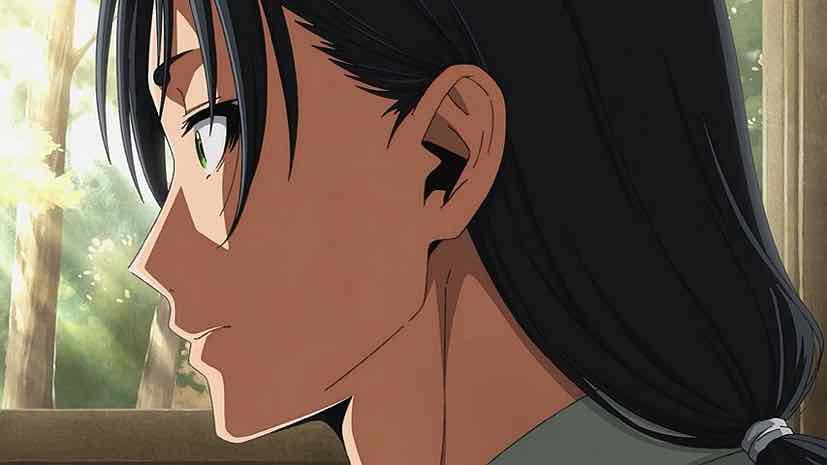 In a funny sort of way I think that (like his art style, equally idiosyncratic) might be a more natural fit with Nige Jouzu no Wakagimi than Ansatsu Kyoushitsu. In times like these people lived with tragedy all the time. Child mortality was ridiculously high, life expectancy was generally short, epidemics were a fact of life and so was feudal conflict and civil war. The poor as ever got the worst of it – and in any military conflict they were pawns in every sense. But even the nobility was not immune from this (as any clan on the losing end of a conflict would tell you). Yet humor still existed – people still laughed. They just learned how to do it in the face of death and hardship.
In a funny sort of way I think that (like his art style, equally idiosyncratic) might be a more natural fit with Nige Jouzu no Wakagimi than Ansatsu Kyoushitsu. In times like these people lived with tragedy all the time. Child mortality was ridiculously high, life expectancy was generally short, epidemics were a fact of life and so was feudal conflict and civil war. The poor as ever got the worst of it – and in any military conflict they were pawns in every sense. But even the nobility was not immune from this (as any clan on the losing end of a conflict would tell you). Yet humor still existed – people still laughed. They just learned how to do it in the face of death and hardship.
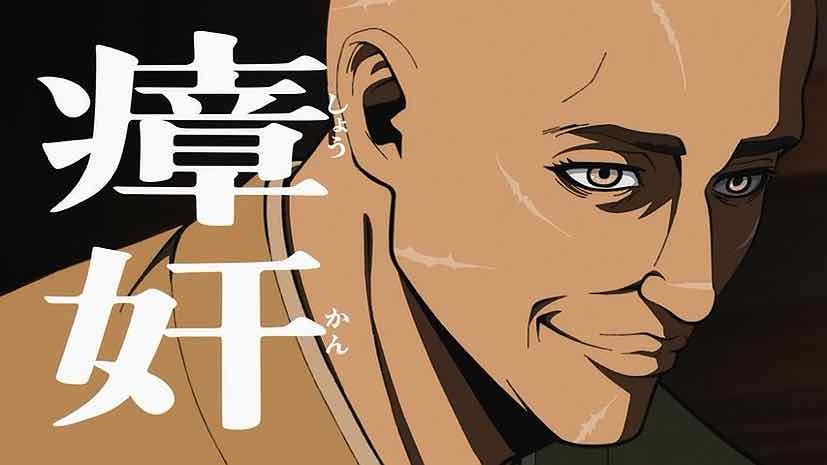 Winter was often a time of deprivation and hardship in this era (both in Japan and Europe), though military conflict tended to hibernate. A respite in Suwa is just that, a respite – Sadamune is not going to abandon his quest to claim Suwa just because of a stolen Imperial command. Unfortunately this is also a time when Yorishige loses his ability for precognition (no explanation is forthcoming). In addition to making him testy and anxious, it means he can’t see what a particular path holds for Tokiyuki. That’s less of a problem if he’s training idyllically with the Elusive Warriors, but when the prospect of an important scouting mission comes along, that’s a different story.
Winter was often a time of deprivation and hardship in this era (both in Japan and Europe), though military conflict tended to hibernate. A respite in Suwa is just that, a respite – Sadamune is not going to abandon his quest to claim Suwa just because of a stolen Imperial command. Unfortunately this is also a time when Yorishige loses his ability for precognition (no explanation is forthcoming). In addition to making him testy and anxious, it means he can’t see what a particular path holds for Tokiyuki. That’s less of a problem if he’s training idyllically with the Elusive Warriors, but when the prospect of an important scouting mission comes along, that’s a different story.
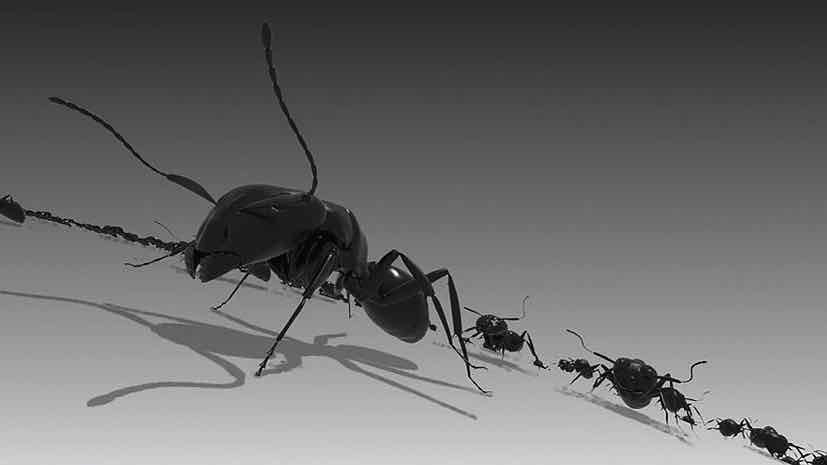 Sadamune has appointed a new commander in his quest to claim by force when he can no longer claim by edict. Shokan (Touchi Hiroki) is a former thief, a scoundrel for whom perpetually taking what doesn’t belong to him is a calling, As far as I know he’s not (unlike most of the generals and lords in TES) based on a real historical figure. He’s been active on the northern border of the province but Yorishige’s main scout is already engaged on a mission. Tokiyuki – desperate for a means of proving valuable to his savior – volunteers the kiddie corps to take on the mission. And on paper it makes sense – it’s an ideal job for their little group.
Sadamune has appointed a new commander in his quest to claim by force when he can no longer claim by edict. Shokan (Touchi Hiroki) is a former thief, a scoundrel for whom perpetually taking what doesn’t belong to him is a calling, As far as I know he’s not (unlike most of the generals and lords in TES) based on a real historical figure. He’s been active on the northern border of the province but Yorishige’s main scout is already engaged on a mission. Tokiyuki – desperate for a means of proving valuable to his savior – volunteers the kiddie corps to take on the mission. And on paper it makes sense – it’s an ideal job for their little group.
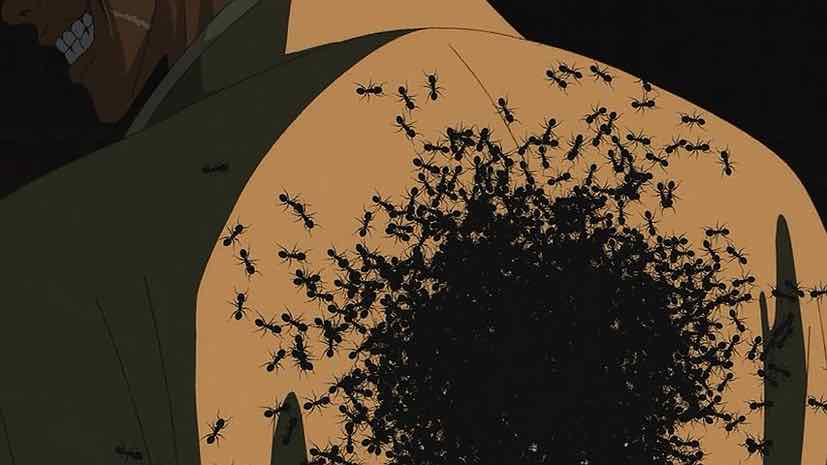 For Yorishige’s lieutenant Moritaka, this indeed makes perfect sense. But Yorishige is extremely stressed about it for obvious reasons – ones he cannot share lest his secret be revealed. Everything rides on Tokiyuki staying alive – if he’s killed, the rest of this is all moot. He can’t stop the group from going, so Yorishige falls back on admonishing the others to protect the young lord at any cost. As they travel north they come to a small hamlet on the fringes of Suwa territory, where they plan to spend the night posing as shrine messengers. But they’re set upon by a young dual-wielding swordsman who immediately puts Ayako and Nezu’s skills as protectors to the test.
For Yorishige’s lieutenant Moritaka, this indeed makes perfect sense. But Yorishige is extremely stressed about it for obvious reasons – ones he cannot share lest his secret be revealed. Everything rides on Tokiyuki staying alive – if he’s killed, the rest of this is all moot. He can’t stop the group from going, so Yorishige falls back on admonishing the others to protect the young lord at any cost. As they travel north they come to a small hamlet on the fringes of Suwa territory, where they plan to spend the night posing as shrine messengers. But they’re set upon by a young dual-wielding swordsman who immediately puts Ayako and Nezu’s skills as protectors to the test.
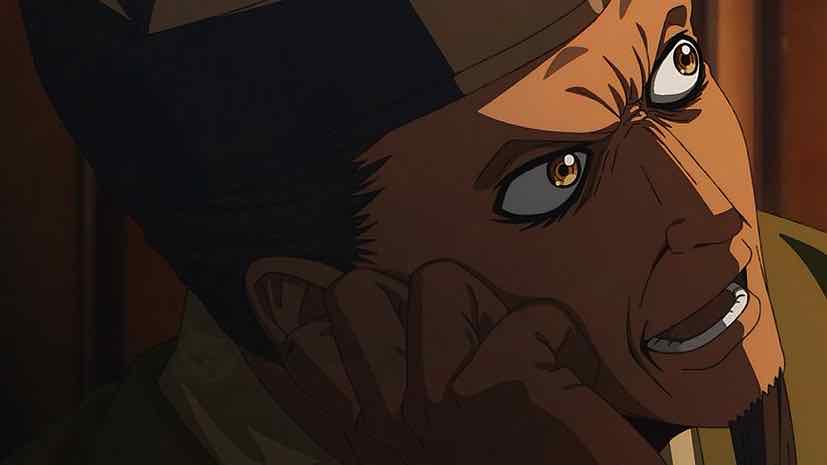 As he watches these two – the only real “warriors” in the Elusive Warriors – battle with the stranger, Tokiyuki immediately realizes just how easy they’ve been going on him in training. That’s a further reminder of how much of a burden his own weakness (though certainly understandable given his age) places on his retainers. It takes everything Nezu and Ayako have just to stay alive, but eventually the swordsman spots Shizuku and recognizes her, immediately standing down. He introduces himself as Fubuki (Toya Kikunosuke), a ronin wandering the region, and veteran of a run-in with Shizuku during a shrine festival.
As he watches these two – the only real “warriors” in the Elusive Warriors – battle with the stranger, Tokiyuki immediately realizes just how easy they’ve been going on him in training. That’s a further reminder of how much of a burden his own weakness (though certainly understandable given his age) places on his retainers. It takes everything Nezu and Ayako have just to stay alive, but eventually the swordsman spots Shizuku and recognizes her, immediately standing down. He introduces himself as Fubuki (Toya Kikunosuke), a ronin wandering the region, and veteran of a run-in with Shizuku during a shrine festival.
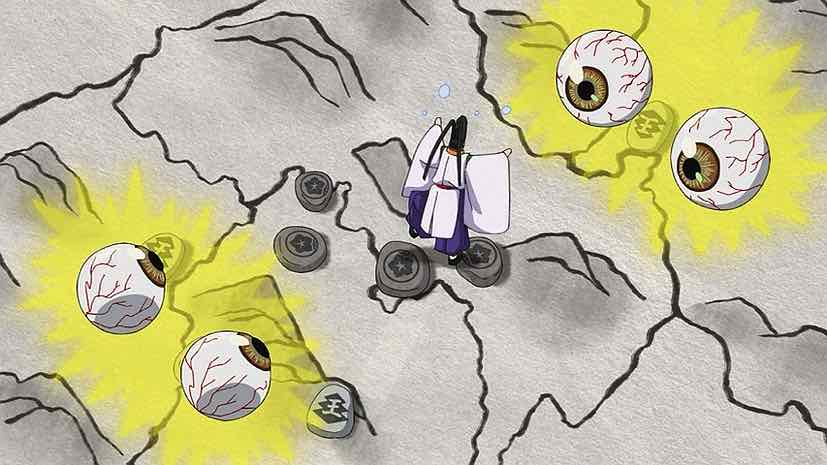 As Fubuki tells his story, a grim picture is painted. The village has been raided by an unknown army three times, and all the adults have been killed. Fubuki took it on himself to defend the survivors, and he tells the elusives that in fact the village is a place of extreme strategic importance – indicating that whoever is in charge of Osagawara operations in the area knows his stuff. Fubuki is clearly a gifted strategist as well as swordsman, and Tokiyuki immediately sees his potential value as a retainer (and instructor). But the more pressing issue is what to do about the village.
As Fubuki tells his story, a grim picture is painted. The village has been raided by an unknown army three times, and all the adults have been killed. Fubuki took it on himself to defend the survivors, and he tells the elusives that in fact the village is a place of extreme strategic importance – indicating that whoever is in charge of Osagawara operations in the area knows his stuff. Fubuki is clearly a gifted strategist as well as swordsman, and Tokiyuki immediately sees his potential value as a retainer (and instructor). But the more pressing issue is what to do about the village.
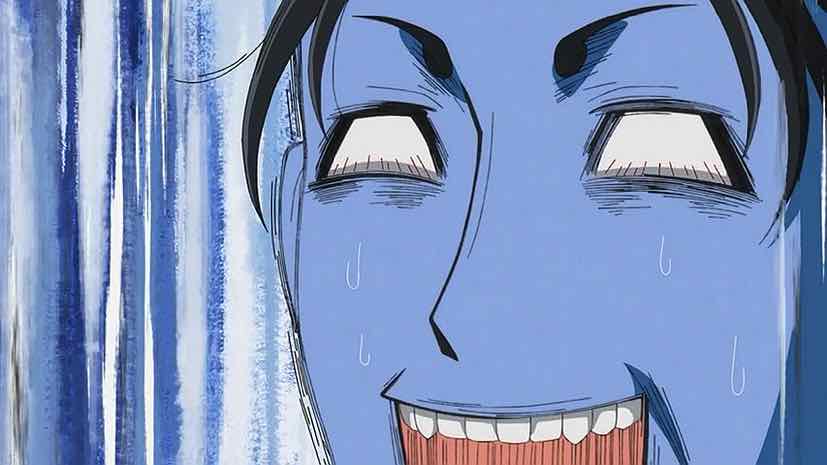 Shizuku recommends retreating to the shrine, taking the children with them. Prioritizing the young lord’s survival, as her father would want. But Tokiyuki wants to take a stand – not only because of the place’s strategic value, but because the lives of the surviving children have already been torn asunder. Fubuki needs no convincing, obviously – though keeping him fed is clearly a logistical nightmare. This is the sort of experience Tokiyuki needs in order to grow into the impossible role laid out before him, but if he dies everything else becomes irrelevant. This is the paradox of his existence, and a reminder of just how overwhelmingly the odds are stacked against him.
Shizuku recommends retreating to the shrine, taking the children with them. Prioritizing the young lord’s survival, as her father would want. But Tokiyuki wants to take a stand – not only because of the place’s strategic value, but because the lives of the surviving children have already been torn asunder. Fubuki needs no convincing, obviously – though keeping him fed is clearly a logistical nightmare. This is the sort of experience Tokiyuki needs in order to grow into the impossible role laid out before him, but if he dies everything else becomes irrelevant. This is the paradox of his existence, and a reminder of just how overwhelmingly the odds are stacked against him.


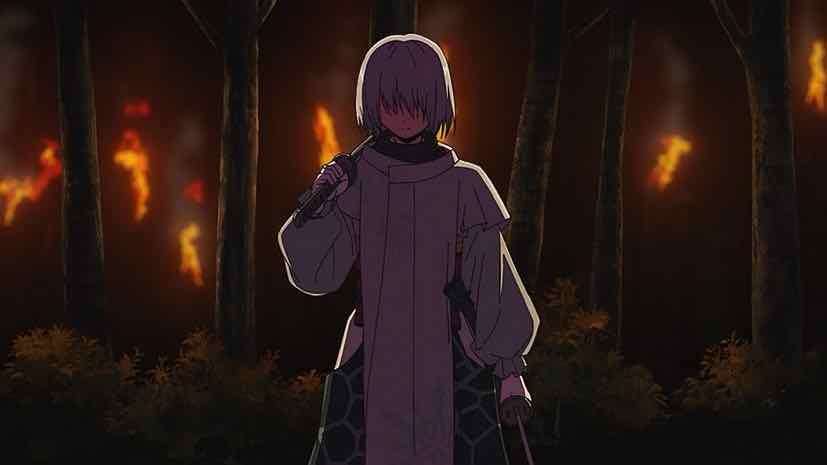
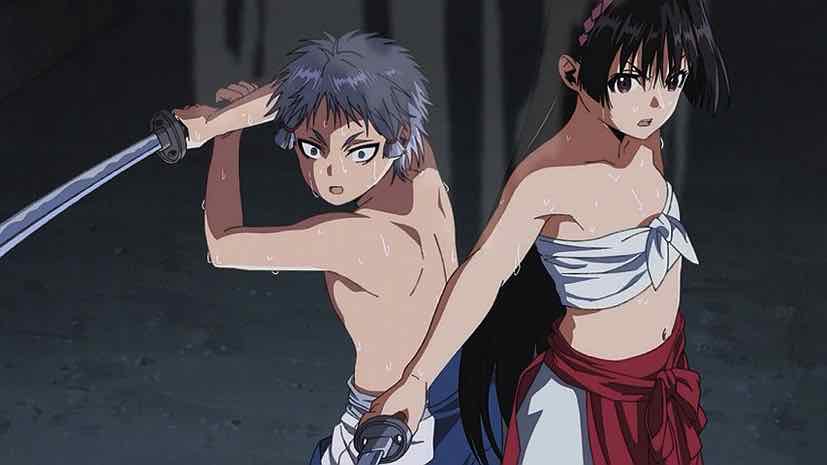
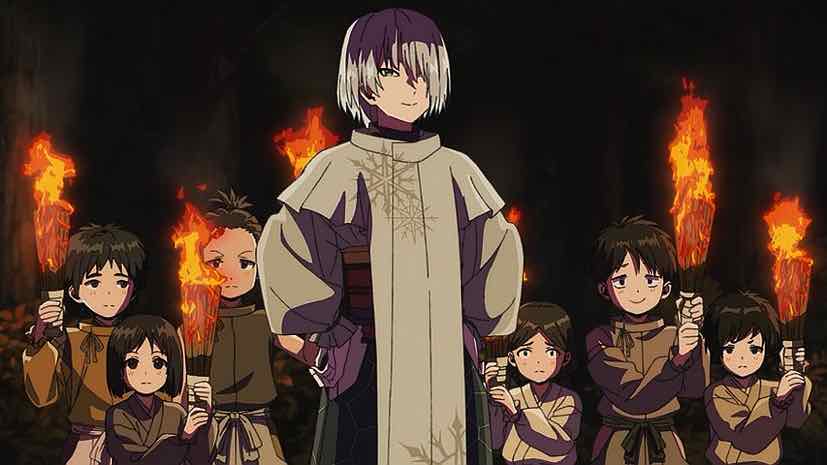
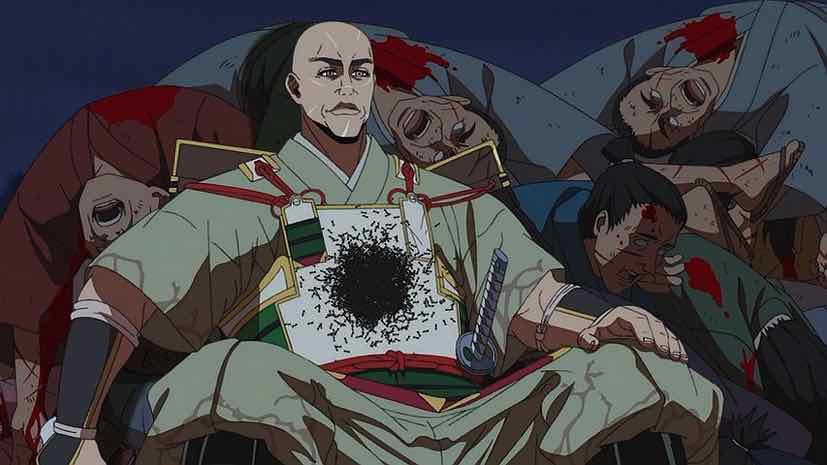
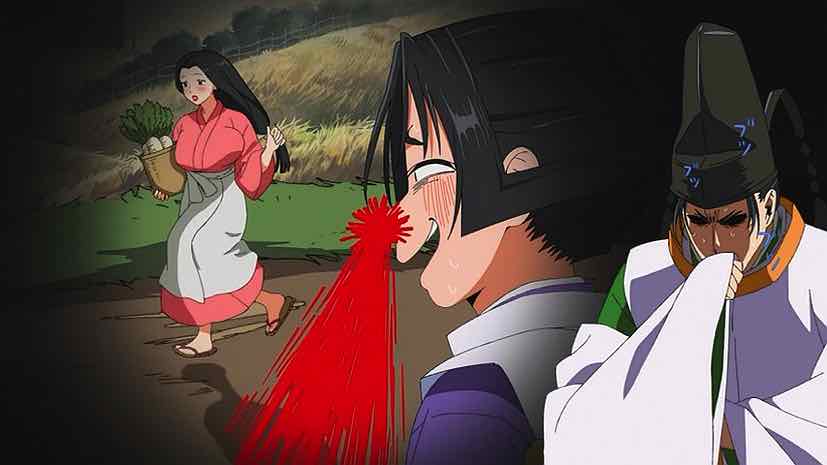
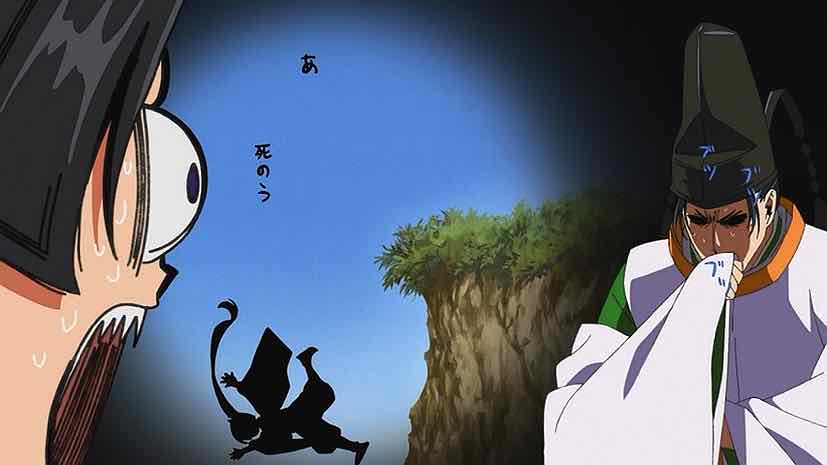
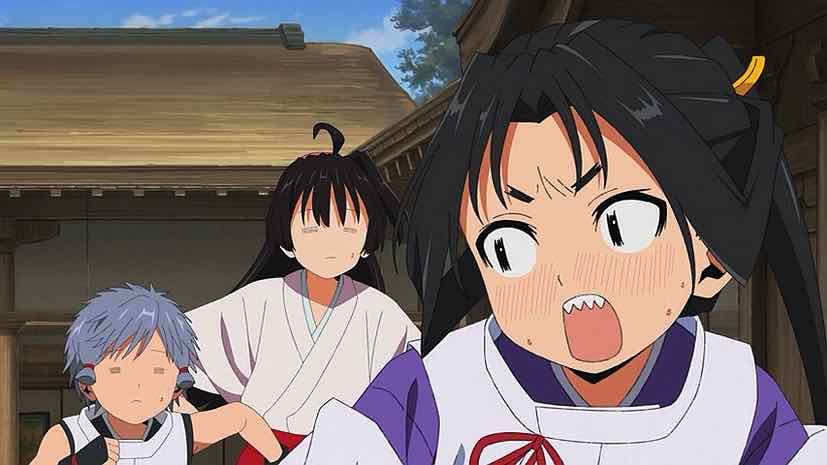
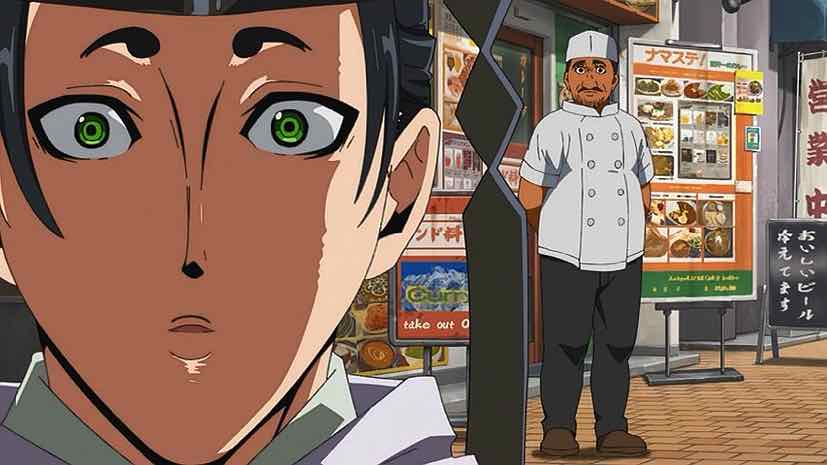
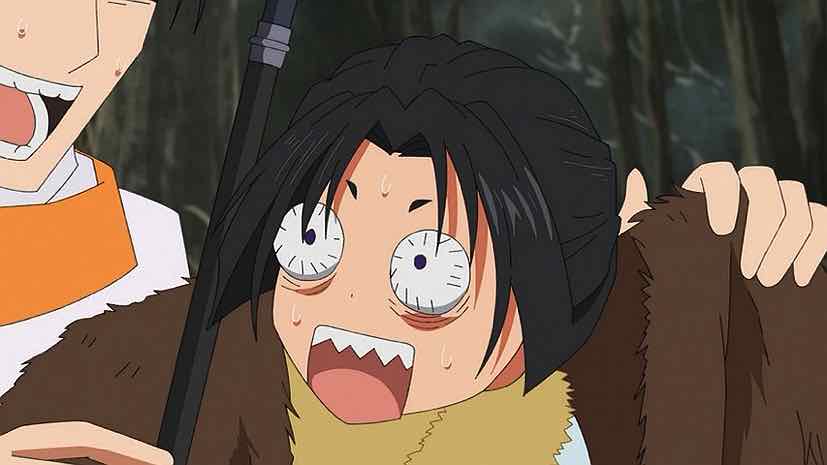
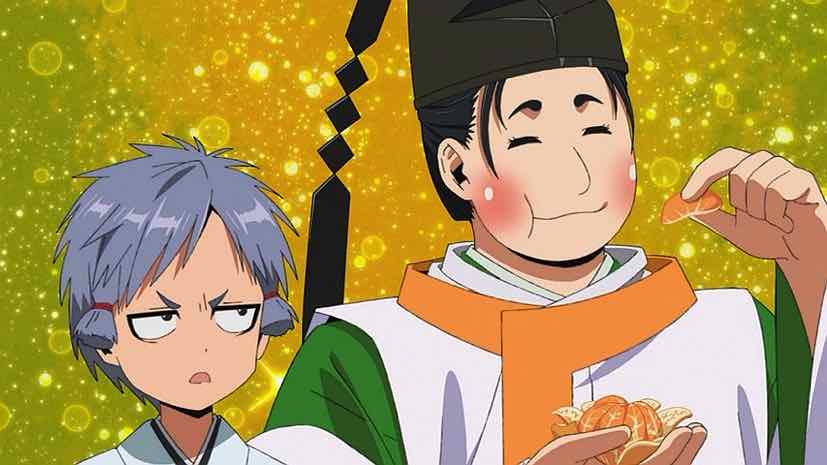
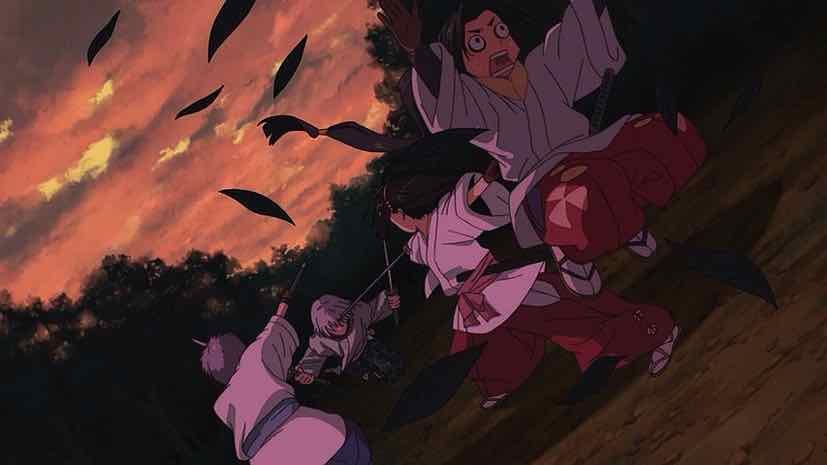
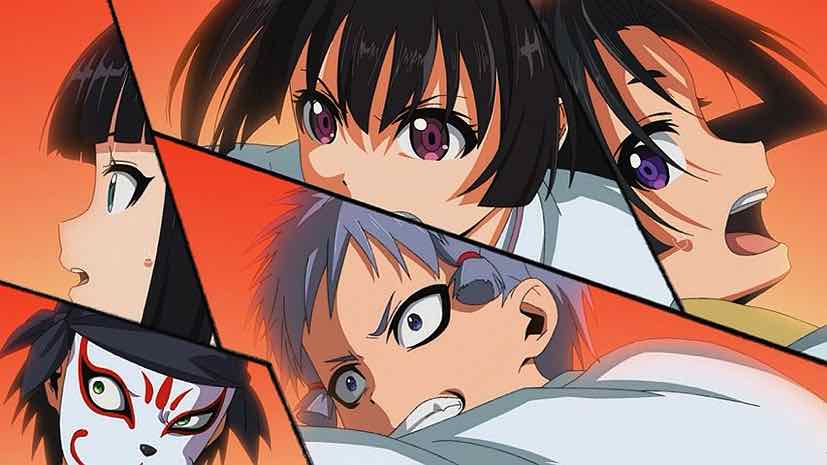
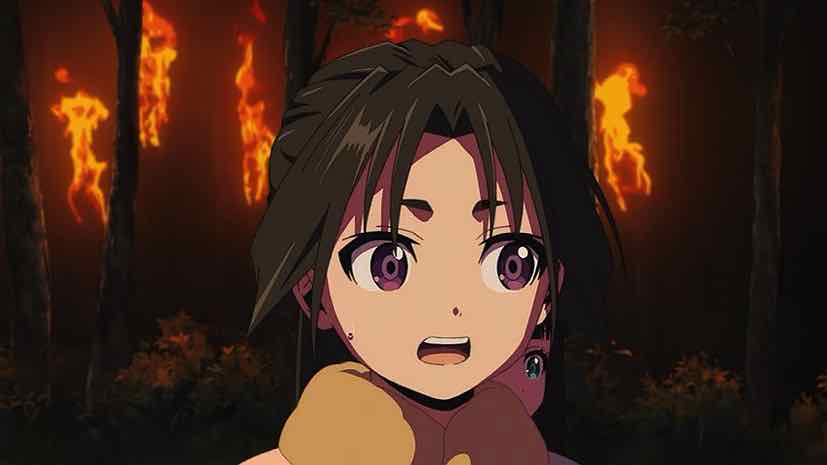
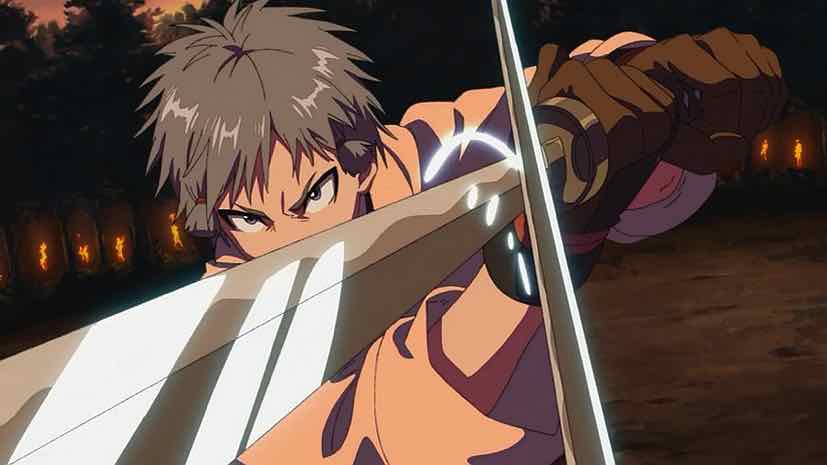
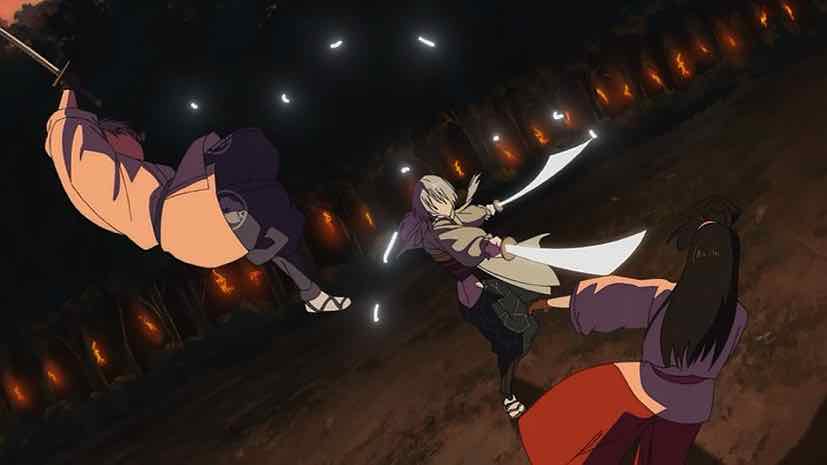
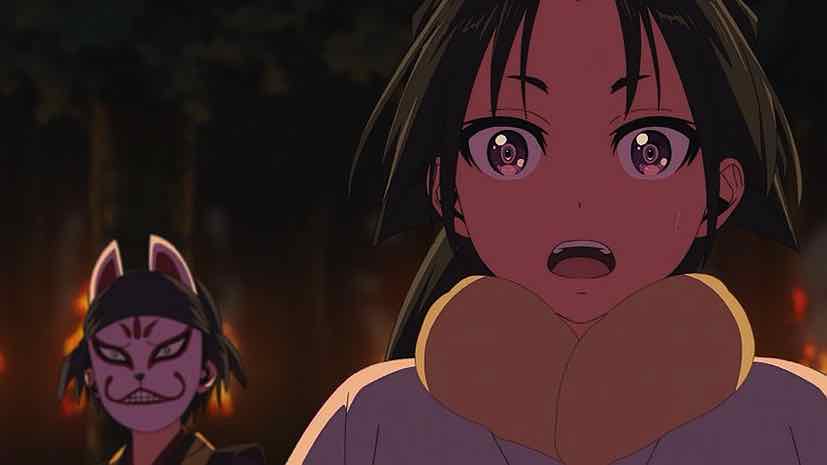
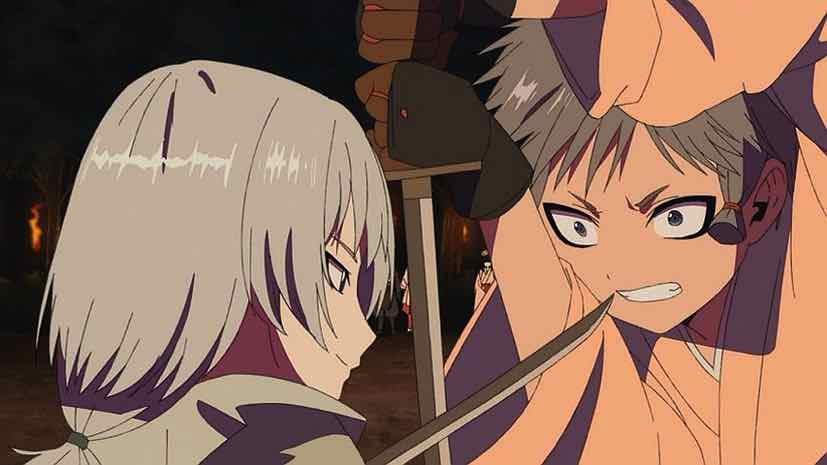
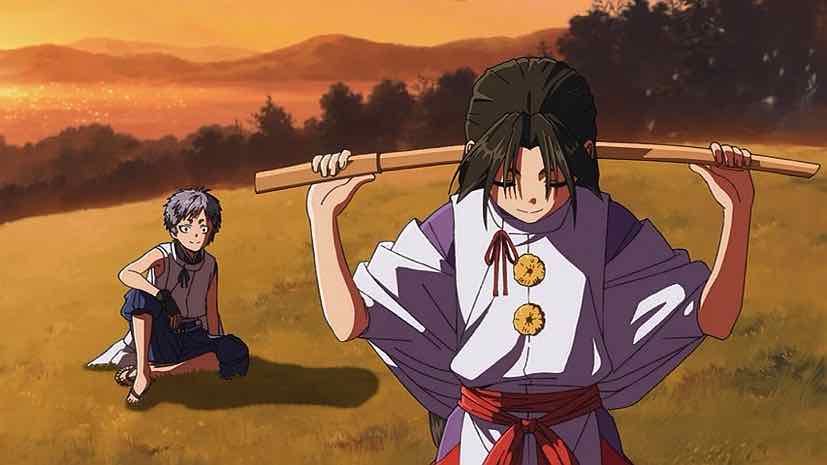
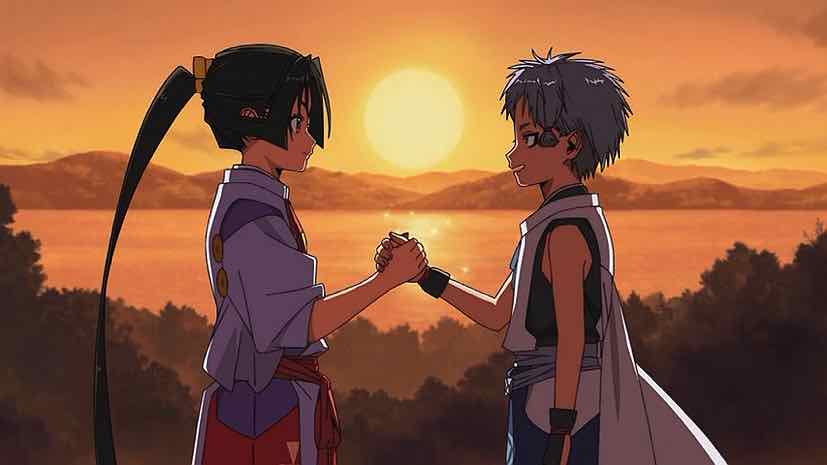
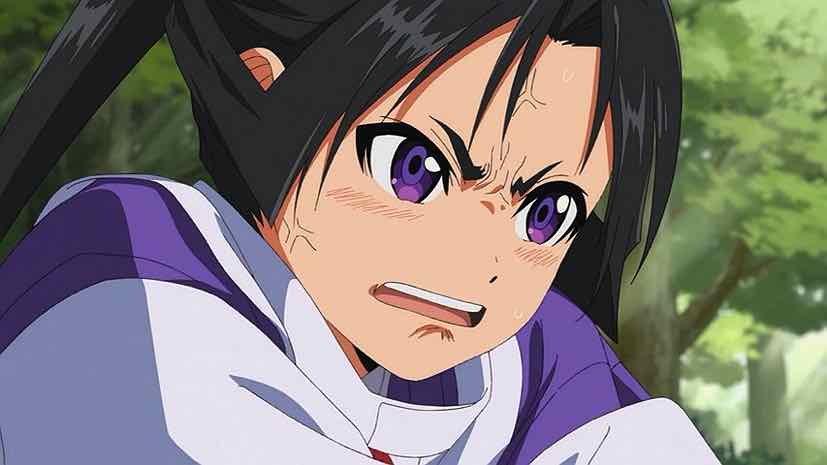

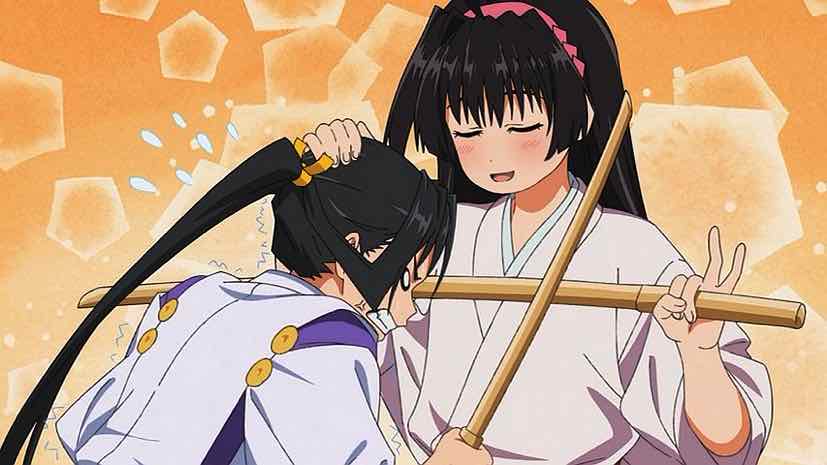
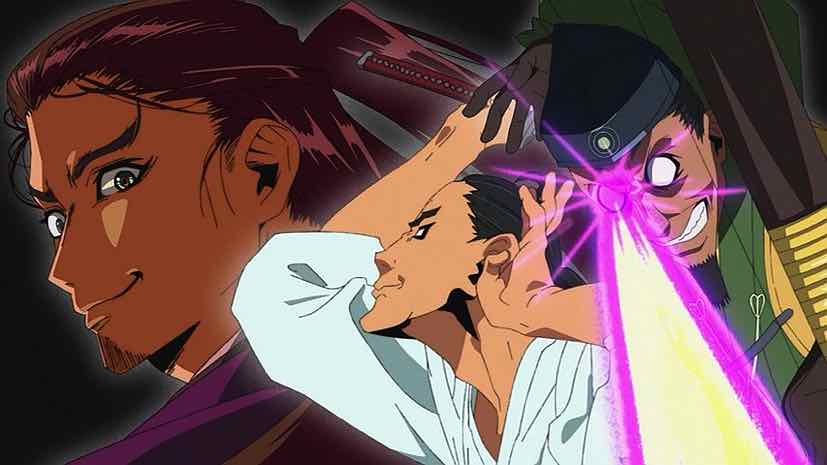
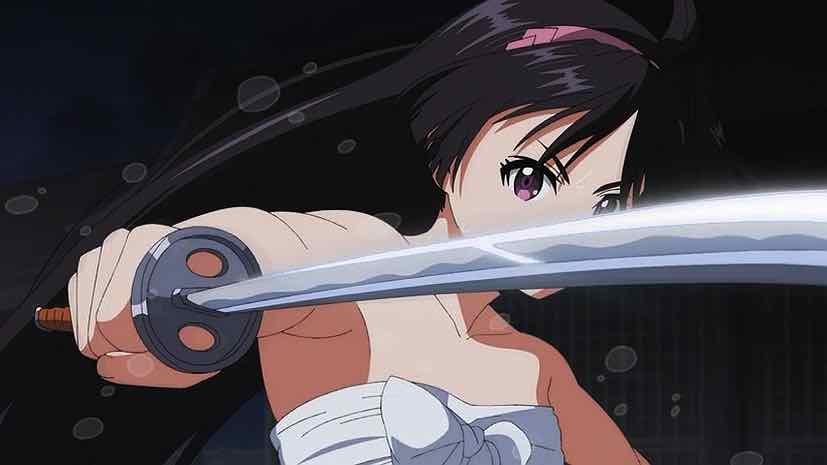
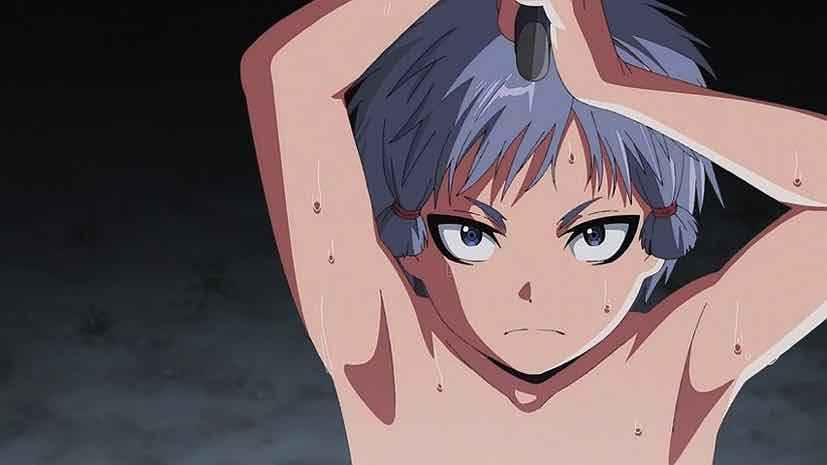
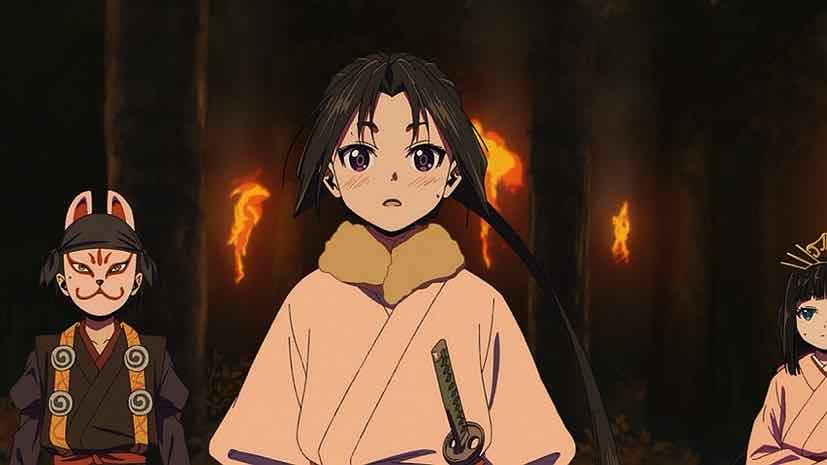
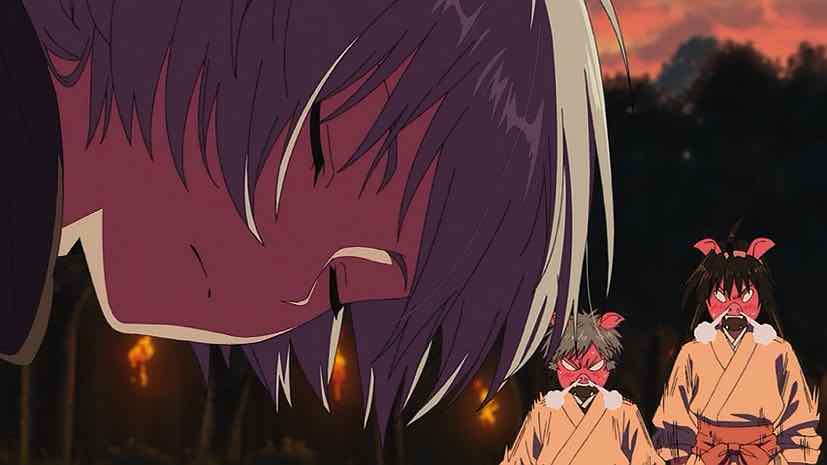
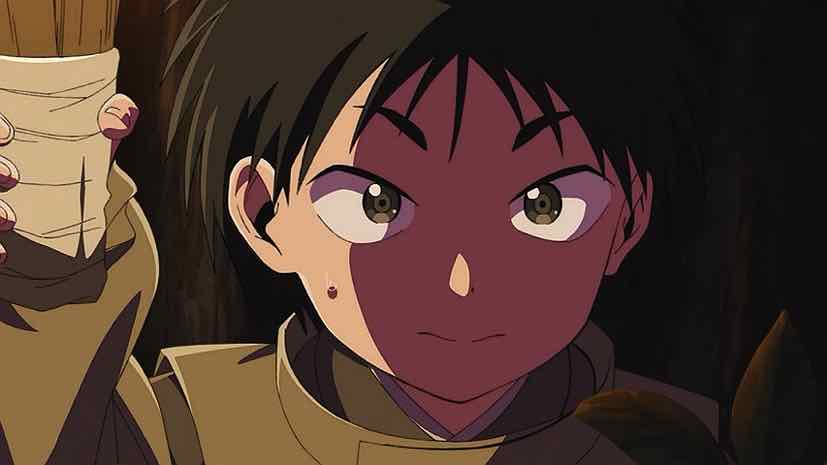
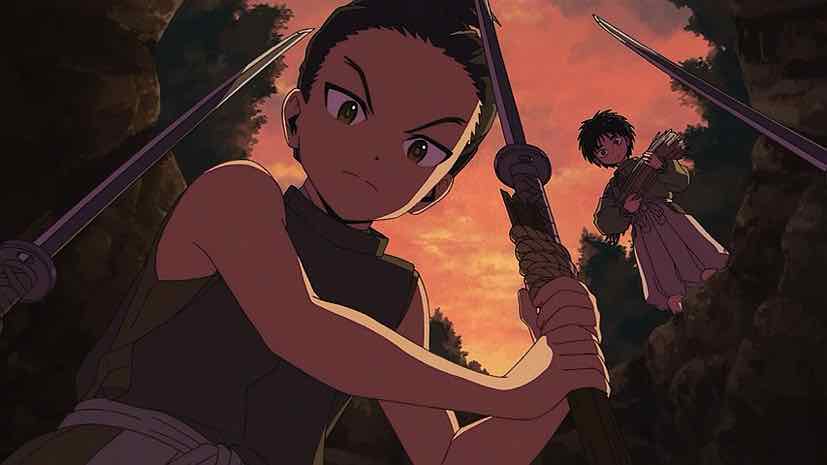
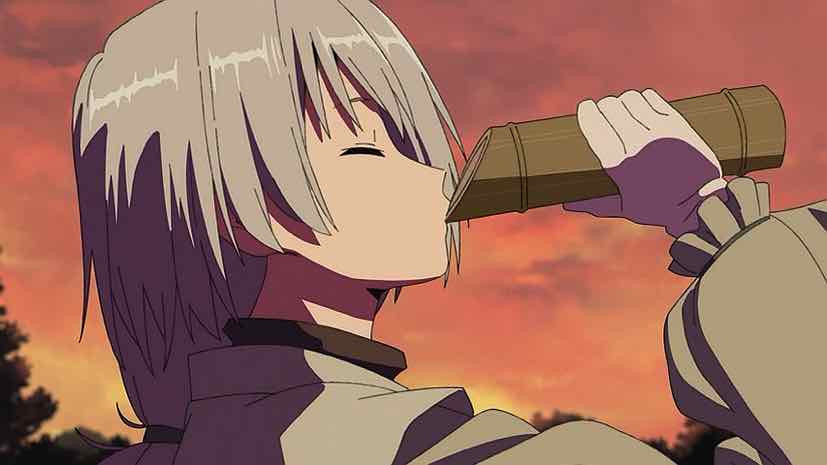
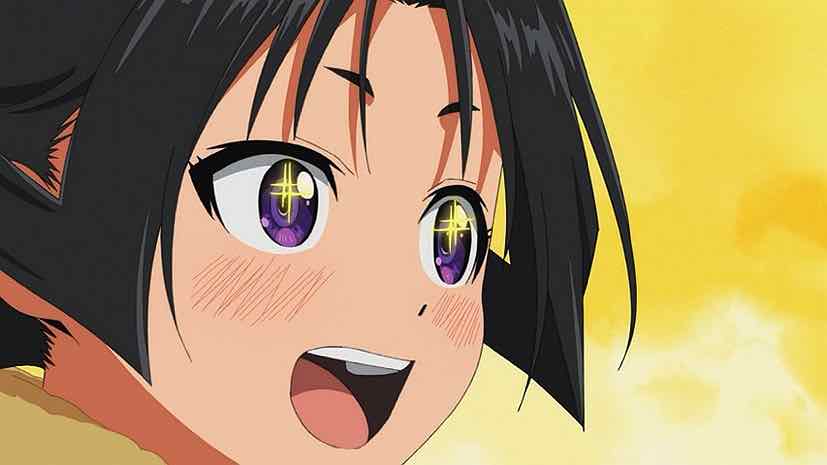
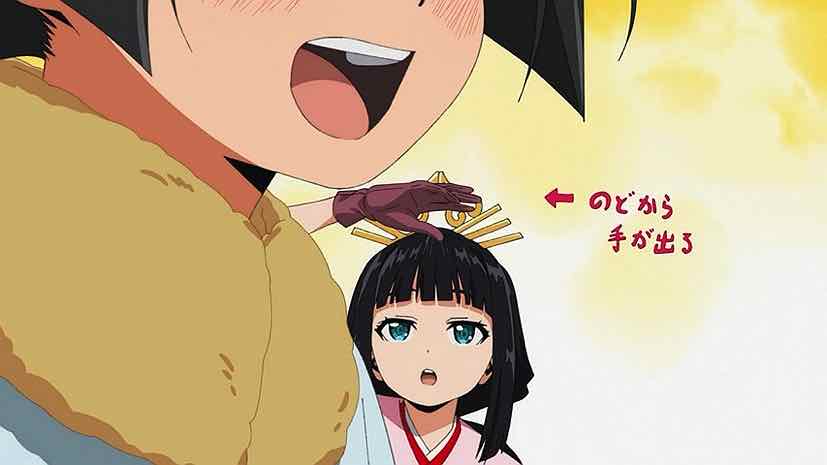
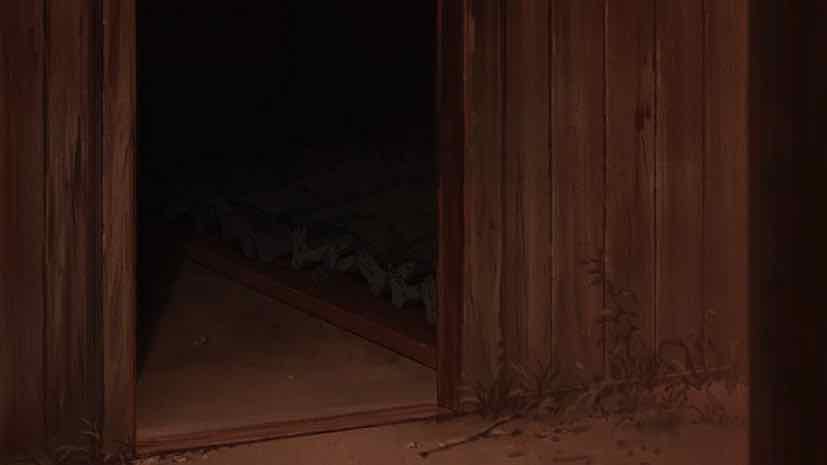
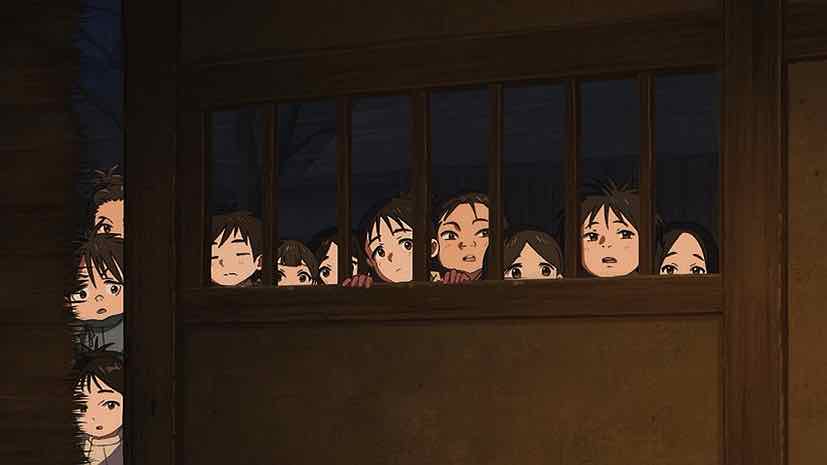
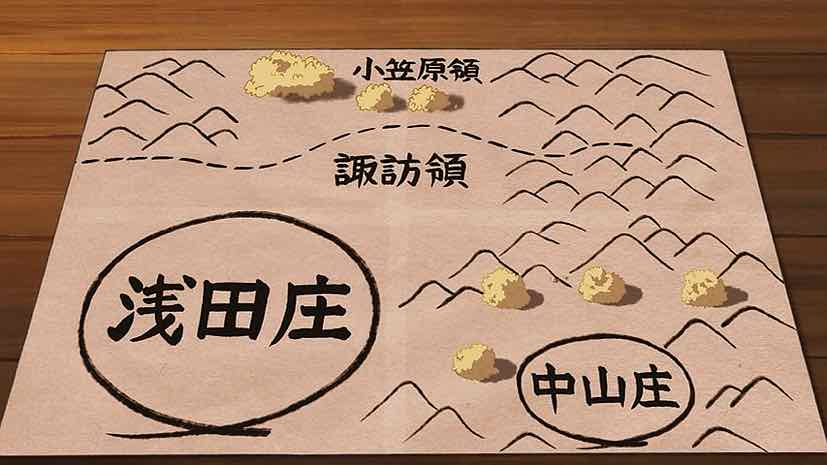
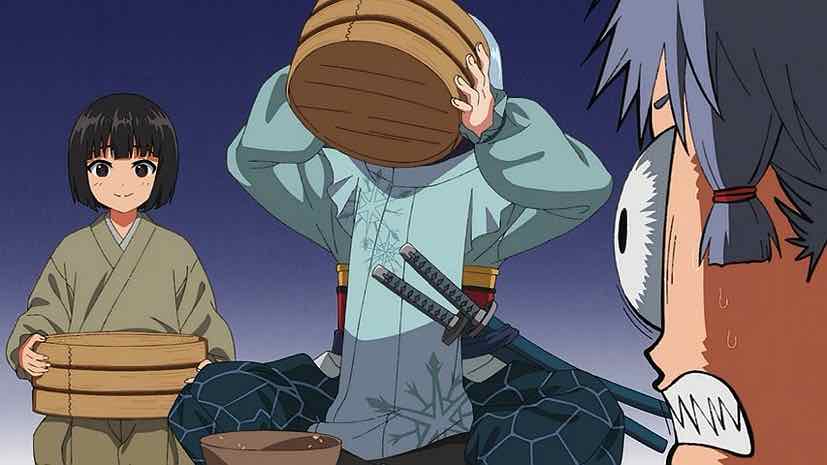
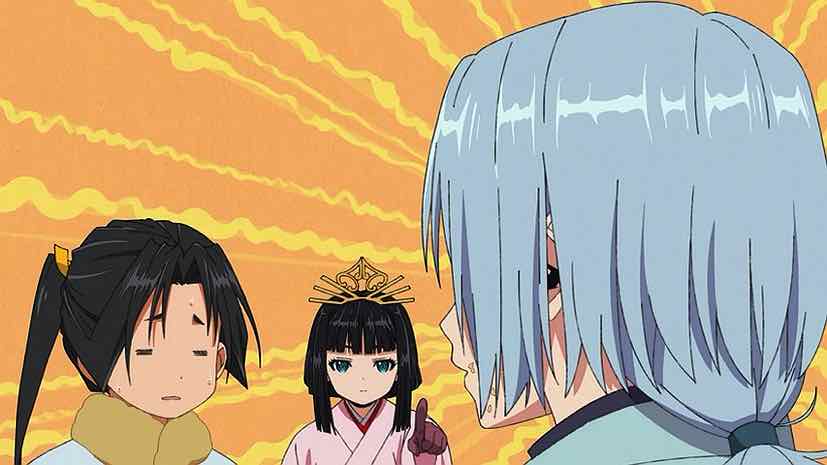
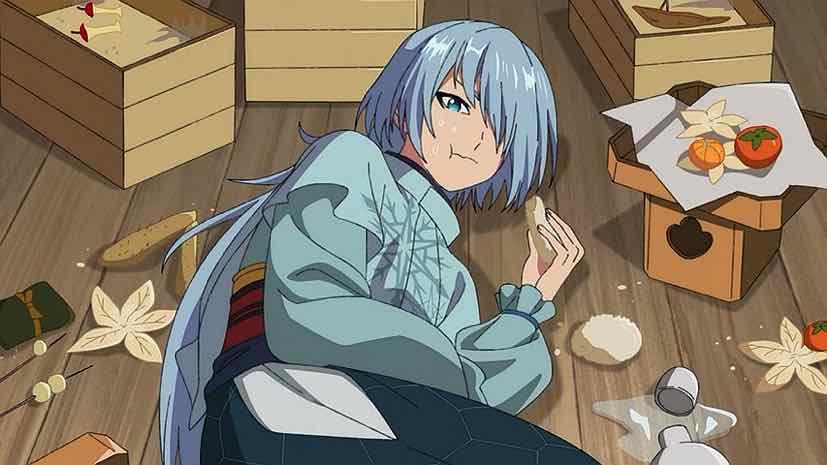
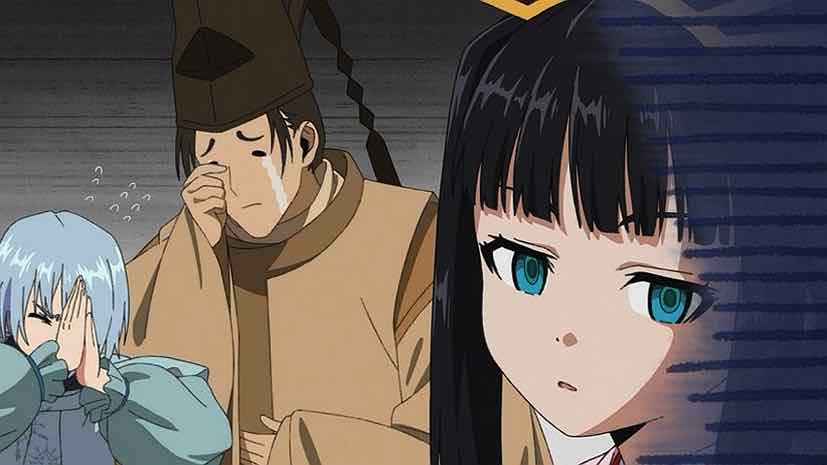
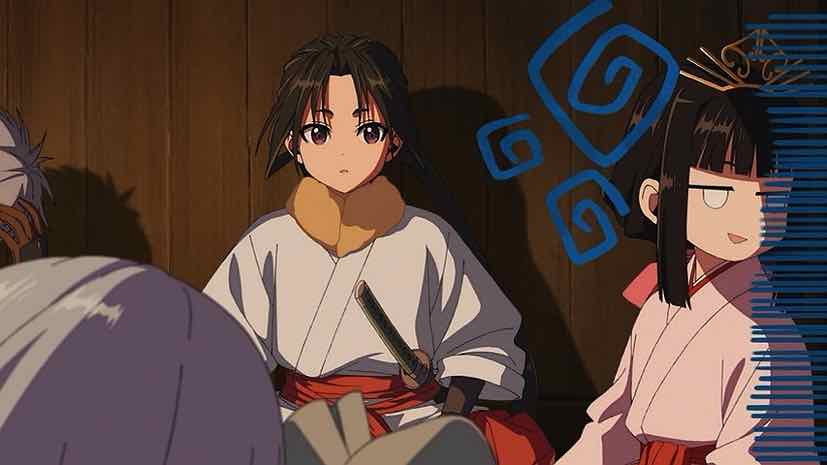
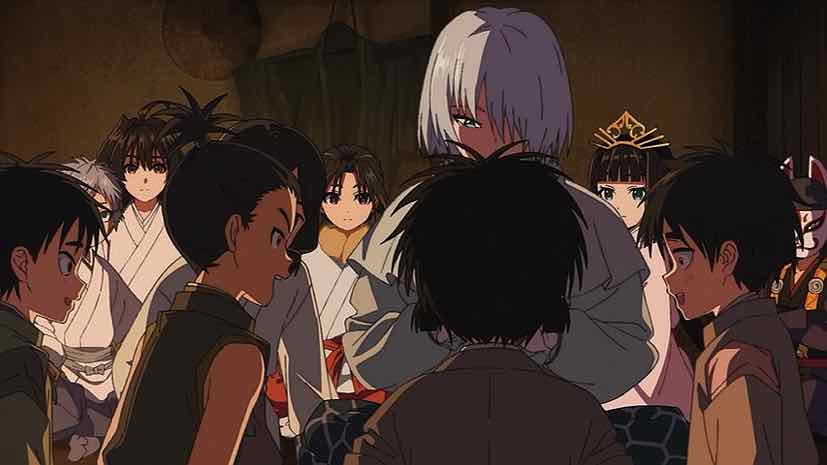
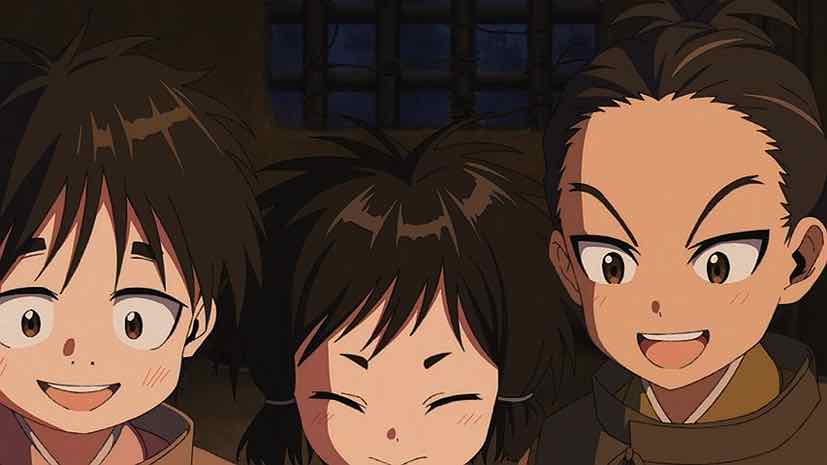

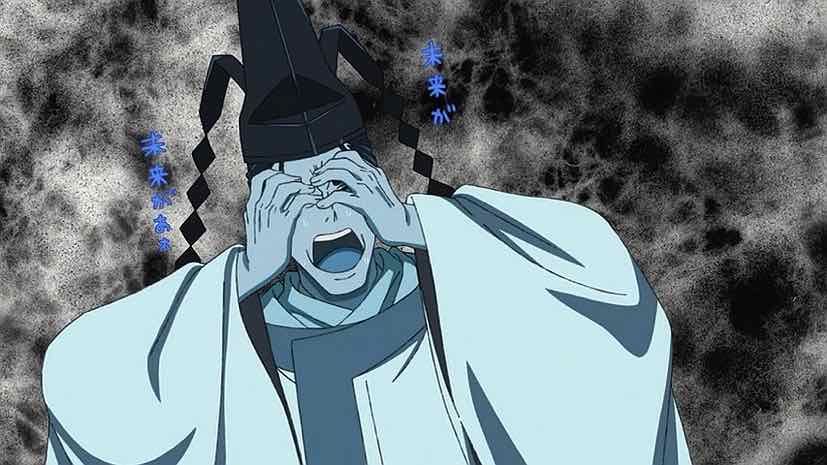
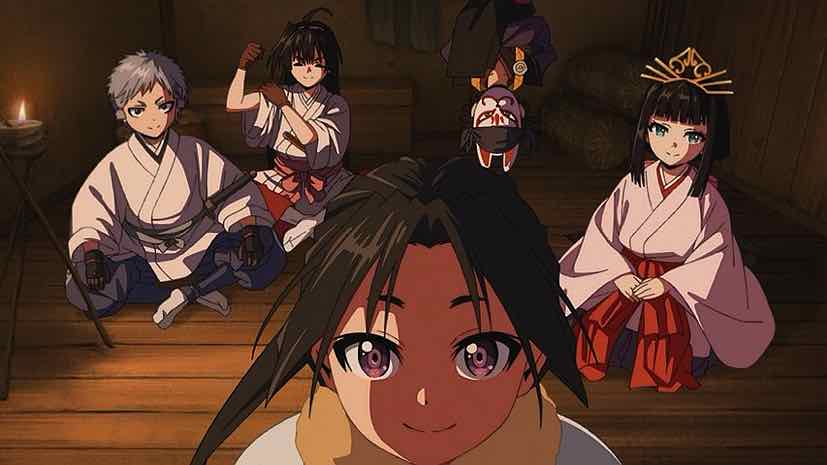
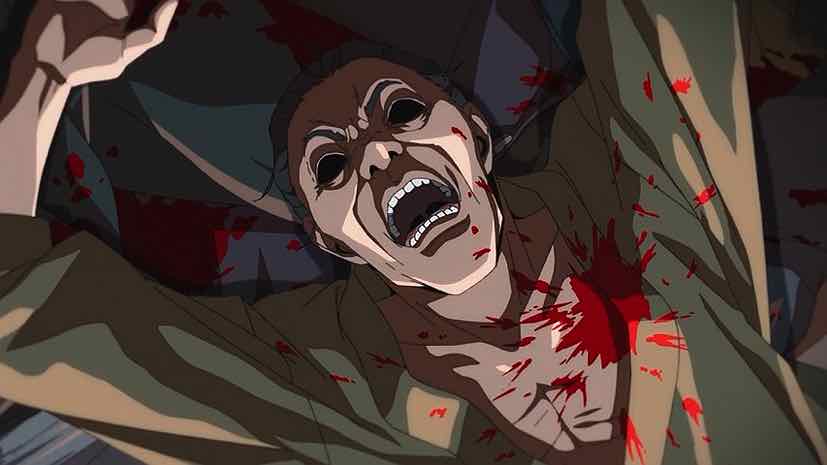
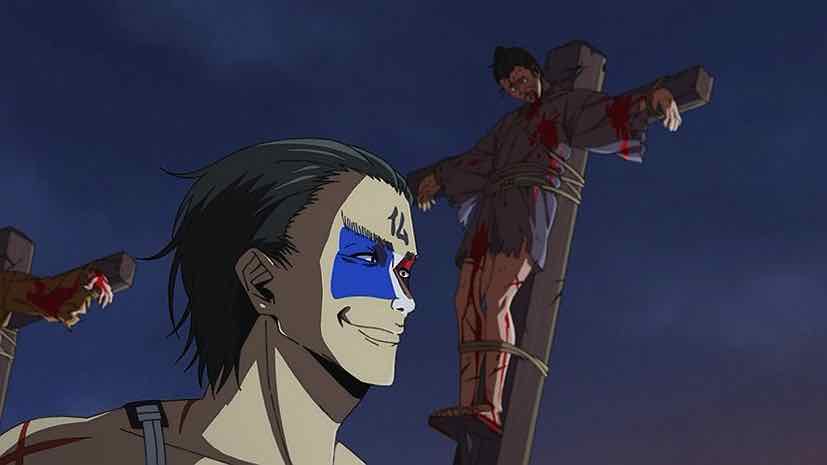
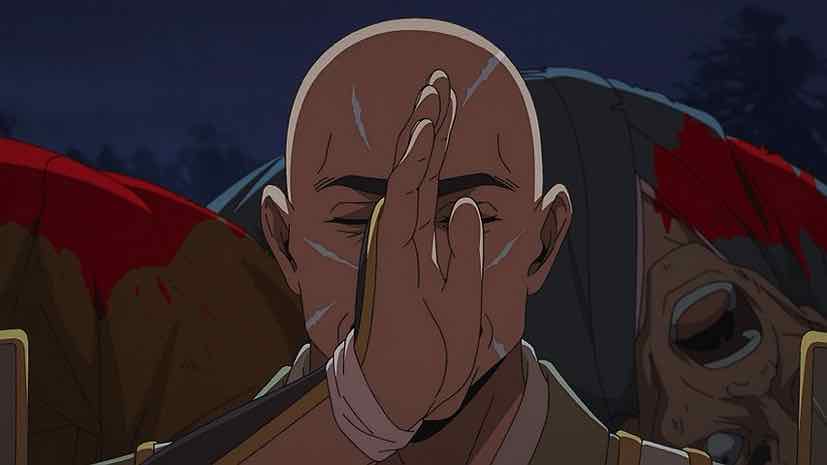
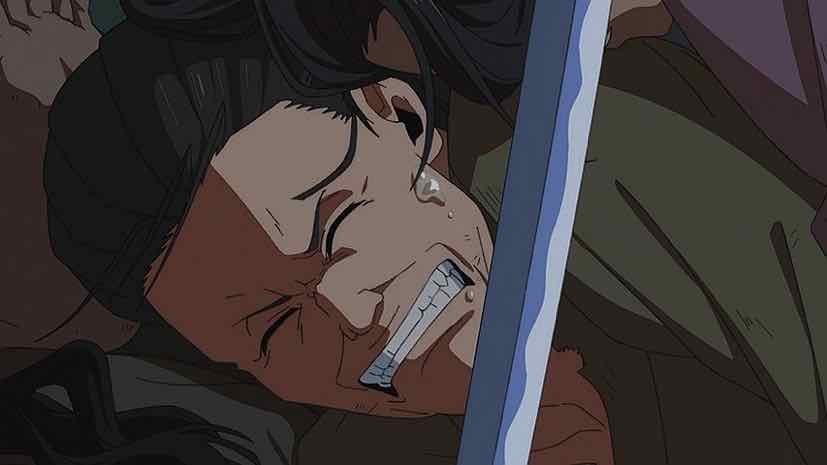
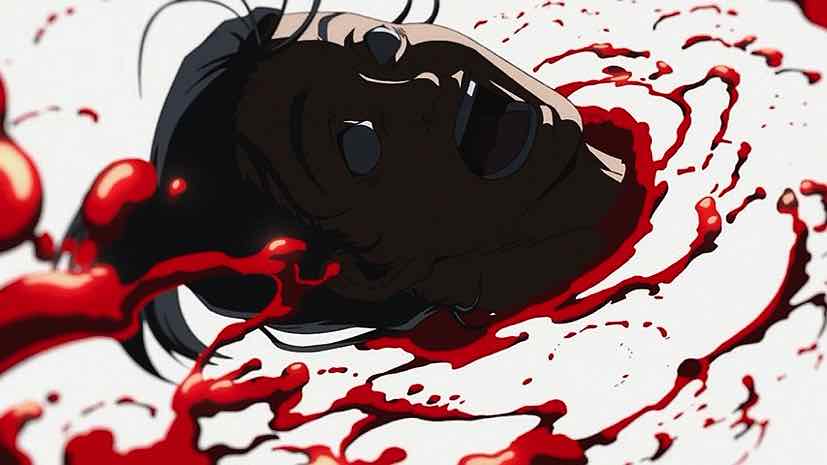
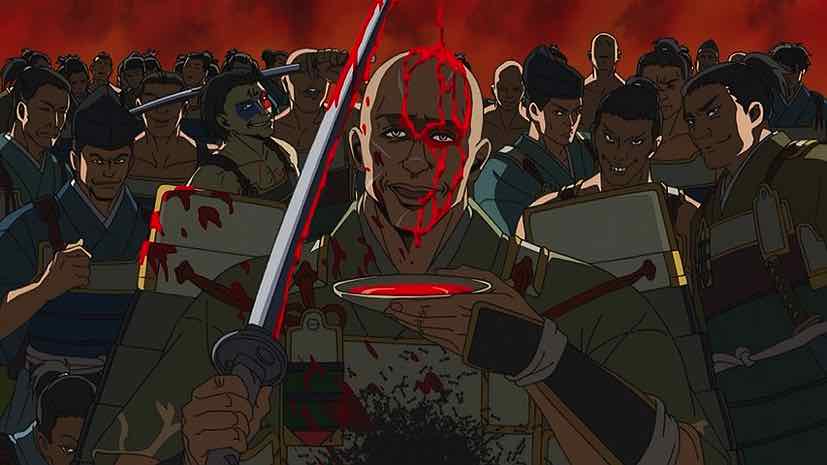
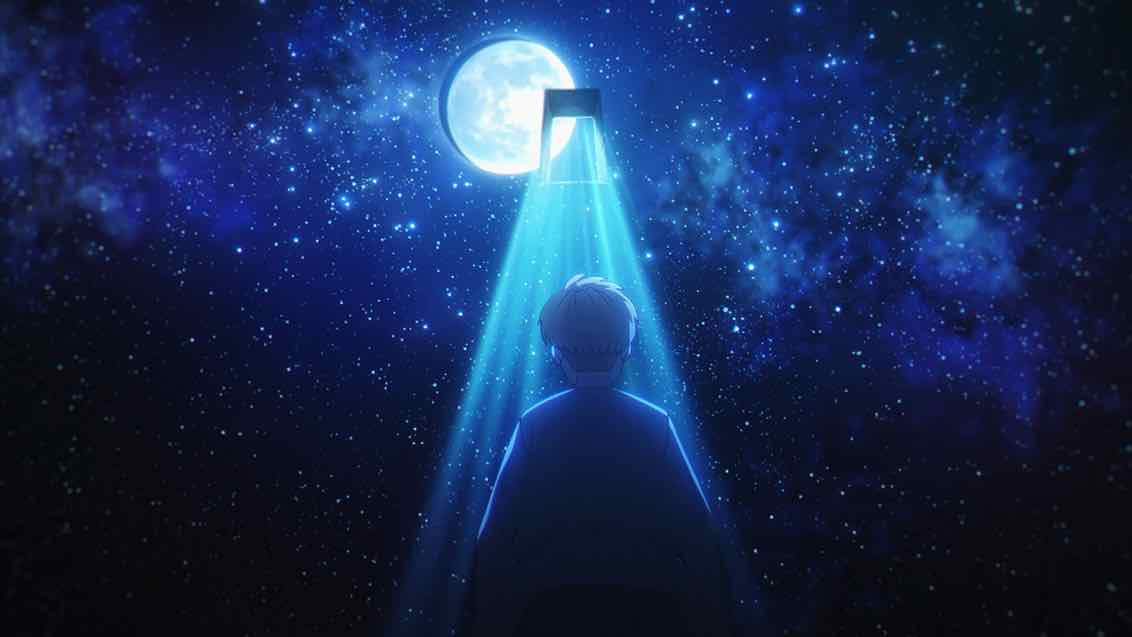
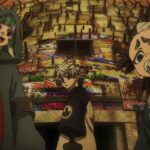
Rob Barrett
August 18, 2024 at 1:09 pmShokan’s self-serving, cynical take on the nembutsu is something my students wondered about this past spring when we were reading noh.
Simone
August 18, 2024 at 2:42 pmI’ve read a comment mentioning that the Jodo Shinshu sect popular in this era did indeed have something similar to this attitude, so if true, props to Matsui for sneaking in another nugget of historical truth in what sounds just deranged villain talk.
I honestly don’t remember if the manga ever implies that Shokan’s ants move, but the anime making them crawl all over his back just makes him so much creepier.
Guardian Enzo
August 18, 2024 at 3:00 pmIt’s funny you mention it. I distinctly remember the ants as moving, but after your comment I went back and looked at his introduction and Matsui does nothing to explicitly suggest they are. The anime did a great job with it, but what’s really remarkable to me is that Matsui’s art was so evocative that I remembered motion even when there literally wasn’t any.